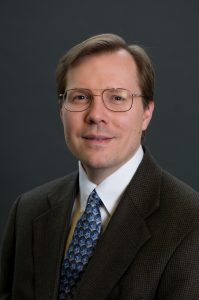 Zack Sullivan, professor of physics, will co-chair and lecture at the Coordinated Theoretical-Experimental Project on QCD (CTEQ) Summer School on QCD and Electroweak Phenomenology at the University of Puerto Rico, Mayaguez, June 18-28.
Zack Sullivan, professor of physics, will co-chair and lecture at the Coordinated Theoretical-Experimental Project on QCD (CTEQ) Summer School on QCD and Electroweak Phenomenology at the University of Puerto Rico, Mayaguez, June 18-28.
“The location was originally chosen to promote the excellent science in the U.S. protectorate of Puerto Rico, and because it is a U.S. location that is easily accessible to students from Latin America,” said Sullivan. After the hurricanes that devastated Puerto Rico, there was concern that the school would have to be moved. “Fortunately, the hurricanes largely spared Mayaguez, and the transportation infrastructure is repaired. By keeping the summer school in Puerto Rico, the CTEQ Collaboration is excited to help the support the local economy of Puerto Rico and remind the world that it has an important role to play in U.S. science.”
Sullivan first taught at the school in 2007 and has helped to organize it since 2011. His research in theoretical particle physics focuses on phenomenology of the strong and weak interactions, and physics beyond the Standard Model.
The CTEQ Summer School provides a focused introduction to perturbative quantum chromodynamics (QCD) along with applications and recent experimental results. It is designed for advanced graduate students and recent Ph.Ds. Additionally, the school will include hands-on Monte Carlo tutorial sessions. QCD is the strong force of nature that binds nuclei together. Perturbation theory is used to calculate the QCD interactions of particles at high energy colliders, and to predict the distribution of particles produced when protons are annihilated.
The international CTEQ Summer School has educated more than 1,000 physicists since 1992. This year the school is sponsored by the University of Puerto Rico, Mayaguez, Colegio De Fisica Fundamental E Interdiciplinaria De Las Americas (COFI), U.S. Department of Energy, National Science Foundation, and the Pittsburgh Particle Physics, Astrophysics, & Cosmology Center (PITT PACC).
